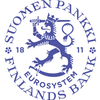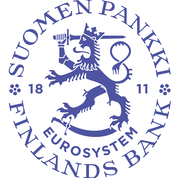ECB Monetary policy decisions

ECB press release 8 September 2022
The Governing Council today decided to raise the three key ECB interest rates by 75 basis points. This major step frontloads the transition from the prevailing highly accommodative level of policy rates towards levels that will ensure the timely return of inflation to the ECB’s 2% medium-term target. Based on its current assessment, over the next several meetings the Governing Council expects to raise interest rates further to dampen demand and guard against the risk of a persistent upward shift in inflation expectations. The Governing Council will regularly re-evaluate its policy path in light of incoming information and the evolving inflation outlook. The Governing Council’s future policy rate decisions will continue to be data-dependent and follow a meeting-by-meeting approach.
The Governing Council took today’s decision, and expects to raise interest rates further, because inflation remains far too high and is likely to stay above target for an extended period. According to Eurostat’s flash estimate, inflation reached 9.1% in August. Soaring energy and food prices, demand pressures in some sectors owing to the reopening of the economy, and supply bottlenecks are still driving up inflation. Price pressures have continued to strengthen and broaden across the economy and inflation may rise further in the near term. As the current drivers of inflation fade over time and the normalisation of monetary policy works its way through to the economy and price-setting, inflation will come down. Looking ahead, ECB staff have significantly revised up their inflation projections and inflation is now expected to average 8.1% in 2022, 5.5% in 2023 and 2.3% in 2024.
After a rebound in the first half of 2022, recent data point to a substantial slowdown in euro area economic growth, with the economy expected to stagnate later in the year and in the first quarter of 2023. Very high energy prices are reducing the purchasing power of people’s incomes and, although supply bottlenecks are easing, they are still constraining economic activity. In addition, the adverse geopolitical situation, especially Russia’s unjustified aggression towards Ukraine, is weighing on the confidence of businesses and consumers. This outlook is reflected in the latest staff projections for economic growth, which have been revised down markedly for the remainder of the current year and throughout 2023. Staff now expect the economy to grow by 3.1% in 2022, 0.9% in 2023 and 1.9% in 2024.
The lasting vulnerabilities caused by the pandemic still pose a risk to the smooth transmission of monetary policy. The Governing Council will therefore continue applying flexibility in reinvesting redemptions coming due in the pandemic emergency purchase programme portfolio, with a view to countering risks to the transmission mechanism related to the pandemic.
Key ECB interest rates
The Governing Council decided to raise the three key ECB interest rates by 75 basis points. Accordingly, the interest rate on the main refinancing operations and the interest rates on the marginal lending facility and the deposit facility will be increased to 1.25%, 1.50% and 0.75% respectively, with effect from 14 September 2022.
Following the raising of the deposit facility rate to above zero, the two-tier system for the remuneration of excess reserves is no longer necessary. The Governing Council therefore decided today to suspend the two-tier system by setting the multiplier to zero.
Asset purchase programme (APP) and pandemic emergency purchase programme (PEPP)
The Governing Council intends to continue reinvesting, in full, the principal payments from maturing securities purchased under the APP for an extended period of time past the date when it started raising the key ECB interest rates and, in any case, for as long as necessary to maintain ample liquidity conditions and an appropriate monetary policy stance.
As concerns the PEPP, the Governing Council intends to reinvest the principal payments from maturing securities purchased under the programme until at least the end of 2024. In any case, the future roll-off of the PEPP portfolio will be managed to avoid interference with the appropriate monetary policy stance.
Redemptions coming due in the PEPP portfolio are being reinvested flexibly, with a view to countering risks to the monetary policy transmission mechanism related to the pandemic.
Refinancing operations
The Governing Council will continue to monitor bank funding conditions and ensure that the maturing of operations under the third series of targeted longer-term refinancing operations (TLTRO III) does not hamper the smooth transmission of its monetary policy. The Governing Council will also regularly assess how targeted lending operations are contributing to its monetary policy stance.
***
The Governing Council stands ready to adjust all of its instruments within its mandate to ensure that inflation stabilises at its 2% target over the medium term. The Transmission Protection Instrument is available to counter unwarranted, disorderly market dynamics that pose a serious threat to the transmission of monetary policy across all euro area countries, thus allowing the Governing Council to more effectively deliver on its price stability mandate.
The President of the ECB will comment on the considerations underlying these decisions at a press conference starting at 14:45 CET today.
Keywords
Images
Links
About Suomen Pankki
The Bank of Finland is the national monetary authority and central bank of Finland. At the same time, it is also a part of the Eurosystem, which is responsible for monetary policy and other central bank tasks in the euro area and administers use of the world’s second largest currency – the euro.
Subscribe to releases from Suomen Pankki
Subscribe to all the latest releases from Suomen Pankki by registering your e-mail address below. You can unsubscribe at any time.
Latest releases from Suomen Pankki
I januari–mars 2025 betalades med kort i första hand till affärer som säljer livsmedel och alkoholfria drycker12.6.2025 10:00:00 EEST | Pressmeddelande
De finländska betaltjänstleverantörernas kunder betalade med betalkort för sammanlagt 17,1 miljarder euro under första kvartalet 2025, vilket var 854 miljoner euro (5,2 %) mer än vid motsvarande tidpunkt året innan. Nästan en tredjedel av summan betalades till försäljare, vars näringsgren är livsmedel och alkoholfria drycker. Kunderna köpte livsmedel och alkoholfria drycker till ett värde av 5,1 miljarder euro under första kvartalet 2025, vilket var 2 % mer än vid motsvarande tidpunkt för ett år sedan.
Kortilla maksettiin tammi-maaliskuussa 2025 ensisijaisesti elintarvikkeita ja alkoholittomia juomia myyville kaupoille12.6.2025 10:00:00 EEST | Tiedote
Suomalaisten maksupalveluntarjoajien asiakkaat maksoivat maksukortilla yhteensä 17,1 mrd. euron edestä vuoden 2025 ensimmäisellä neljänneksellä, mikä oli 854 milj. euroa (5,2 %) enemmän kuin edeltävänä vuonna vastaavana ajankohtana. Lähes kolmasosa summasta maksettiin myyjille, joiden toimiala on elintarvikkeet ja alkoholittomat juomat. Asiakkaat ostivat elintarvikkeita ja alkoholittomia juomia 5,1 mrd. euron edestä vuoden 2025 ensimmäisellä neljänneksellä, mikä oli 2 % enemmän kuin vuosi sitten vastaavana aikana.
In January–March 2025, card payments were primarily made to vendors of food and non-alcoholic beverages12.6.2025 10:00:00 EEST | Press release
In the first quarter of 2025, the value of card payments by Finnish payment service providers’ customers totalled EUR 17.1 billion, which was EUR 854 million (5.2%) more than in the corresponding period a year earlier. Almost a third of this amount was paid to vendors in the food and non-alcoholic beverages industry. The aggregate value of customers’ purchases of food and non-alcoholic beverages was EUR 5.1 billion in the first quarter of 2025, 2% more than in the corresponding period a year earlier.
Handelspolitiken och säkerhetsmiljön anger riktningen för Finlands ekonomi under åren framöver10.6.2025 11:00:00 EEST | Pressmeddelande
Den handelspolitiska utvecklingen är riktgivande för den ekonomiska omvärlden. En upptrappning av handelskriget skulle vara ett bakslag för Finlands ekonomi. För att förstärka Europas yttre säkerhet krävs inte bara nationella insatser utan också gemensamma europeiska initiativ. EU:s nya finanspolitiska regelverk tillåter flexiblare höjning av försvarsutgifterna, men för försvarsinvesteringarna behövs varaktiga finansiella lösningar.
Kauppapolitiikka ja turvallisuusympäristö viitoittavat Suomen talouden lähivuosien suuntaa10.6.2025 11:00:00 EEST | Tiedote
Kauppapolitiikan kehitys määrittää talouden toimintaympäristöä. Kauppasodan kärjistyminen olisi takaisku Suomen taloudelle. Euroopan ulkoisen turvallisuuden vahvistaminen edellyttää kansallisten panostusten lisäksi yhteiseurooppalaisia hankkeita. EU:n uudet finanssipolitiikan säännöt antavat joustoa puolustusmenojen lisäämiseen, mutta puolustusinvestointien rahoittamiseen tarvitaan pysyviä rahoitusratkaisuja.
In our pressroom you can read all our latest releases, find our press contacts, images, documents and other relevant information about us.
Visit our pressroom

